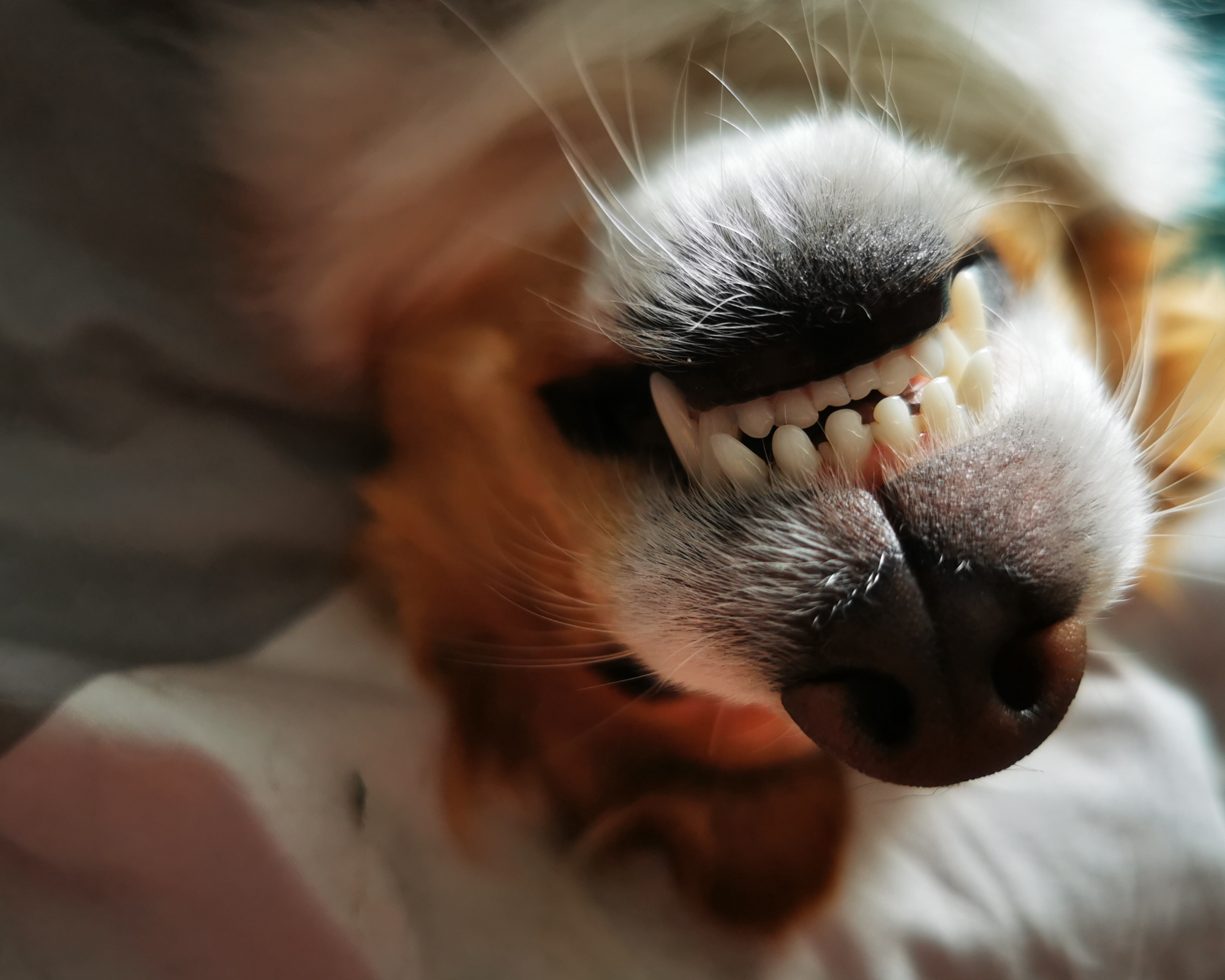

Big Mouth, Big Problems: Dental Care for Giant Breed Dogs
Let’s face it—dental care is not the most glamorous part of big dog parenting.
Brushing? Awkward.
Toothpaste? Questionable chicken flavor.
And sticking your hand into the cavernous mouth of a 150-lb Great Dane? Slightly terrifying.
But here’s the truth: giant breed dogs need dental care just as much as (if not more than) smaller dogs. Their big mouths and heavy chewing power can create serious problems when their teeth are ignored—and not just cosmetic ones. Dental disease can impact your dog’s entire body.
So let’s break it down—without the guilt, the drama, or the mystery.
Why Dental Health Is a Big Deal for Big Dogs
Giant dogs = giant mouths.
Which means more surface area for plaque, tartar, and bacteria to build up. Combine that with a kibble-based diet, lots of drool, and a tendency to destroy toys with their molars, and you’ve got a recipe for dental issues.
Unchecked, poor oral hygiene can lead to:
-
Painful gum disease
-
Tooth loss
-
Infections that enter the bloodstream and damage the heart, liver, or kidneys
And let’s not forget—dental disease hurts. Many dogs suffer silently for months (or years) without ever showing obvious signs of pain.
Common Dental Issues in Giant Breeds
Here’s what we see most often:
-
Tartar and plaque buildup on back molars
-
Gingivitis (red, swollen gums that may bleed)
-
Tooth fractures, especially from chewing on hard bones or toys
-
Halitosis (aka breath that smells like it could peel paint)
These issues aren’t just gross—they’re dangerous. Left untreated, they can lead to serious, expensive problems later.
Brushing: The Gold Standard
Yes, it’s awkward at first.
Yes, your dog might act like you’re trying to poison them.
But brushing is still the #1 way to keep your dog’s mouth healthy.
Tips to make it doable:
-
Use a soft-bristle brush or finger brush
-
ONLY use dog-safe toothpaste (never human toothpaste—it's toxic to dogs)
-
Focus on the outer surfaces of the teeth
-
Start slow and reward generously
-
Aim for 2–3x per week (more if possible)
If your dog hates brushing, try pairing it with a routine they love—like after a walk or right before bed. Consistency helps make it a habit.
Chews, Bones, and Toys: Helpful or Hype?
Chewing can definitely help—but not all chews are created equal.
✅ What to look for:
-
Veterinary Oral Health Council (VOHC) approval
-
Appropriately sized for your giant breed’s mouth
-
Flexible enough not to crack teeth
-
Easy to digest
🚫 What to avoid:
-
Real bones (too hard, high fracture risk)
-
Antlers or hooves (same issue)
-
Rawhide (digestive hazard)
Instead, look for dental chews or rubber toys designed to scrape plaque gently as your dog chews.
Water Additives, Wipes, and Sprays: Do They Work?
They’re not a replacement for brushing—but they can help.
💧 Water additives: Easy to use, can reduce bacteria in the mouth
🧻 Dental wipes: Great for dogs who hate brushes
💨 Sprays: Freshen breath and reduce plaque if used consistently
If brushing isn’t in the cards every week, these options can help you fill the gaps.
When to Call Your Vet
Even with the best at-home care, some dogs still need professional cleanings. Here’s when to get help:
🚨 Signs your dog may need a dental check-up:
-
Bad breath that doesn’t improve
-
Bleeding gums
-
Excessive drooling
-
Pawing at the mouth
-
Changes in eating habits
-
Loose or discolored teeth
Most vets recommend an annual dental exam—and professional cleanings as needed, especially for seniors.
Don’t Wait Until It Smells Bad
We get it—dental care can be annoying, messy, and easy to ignore. But for our big dogs, a healthy mouth is key to a healthy life.
Start small. Try a wipe. Offer a dental chew. Work up to brushing.
Whatever you do, do something.
Because that goofy, drooly, grinning face deserves to stay healthy—and stink-free—for years to come.
